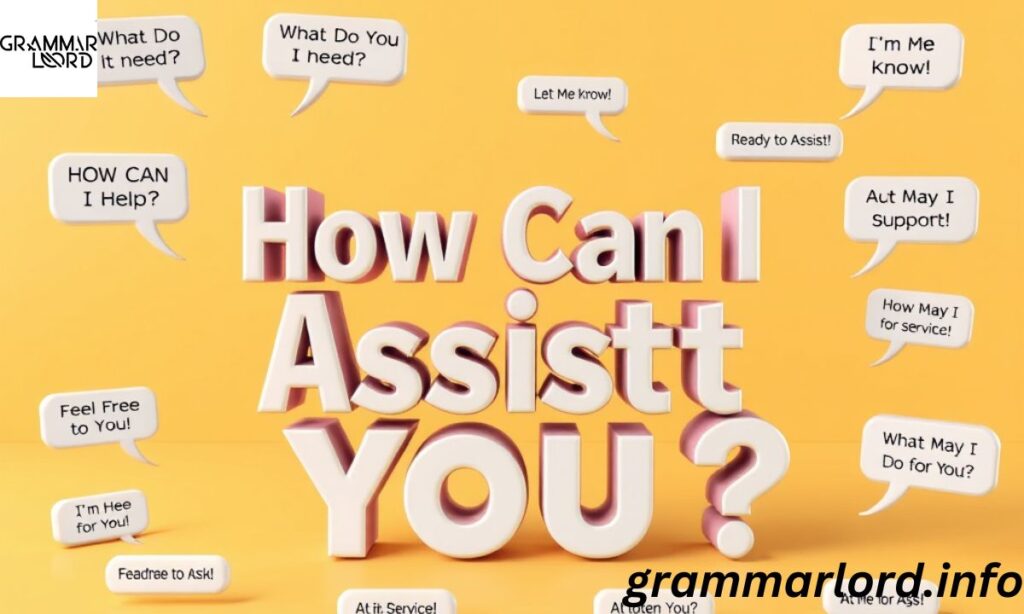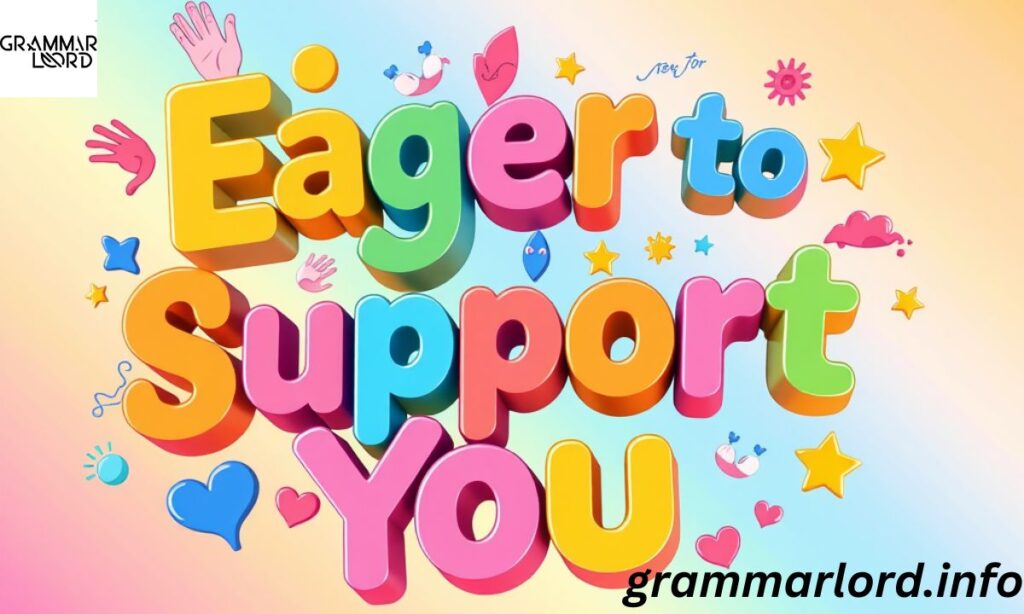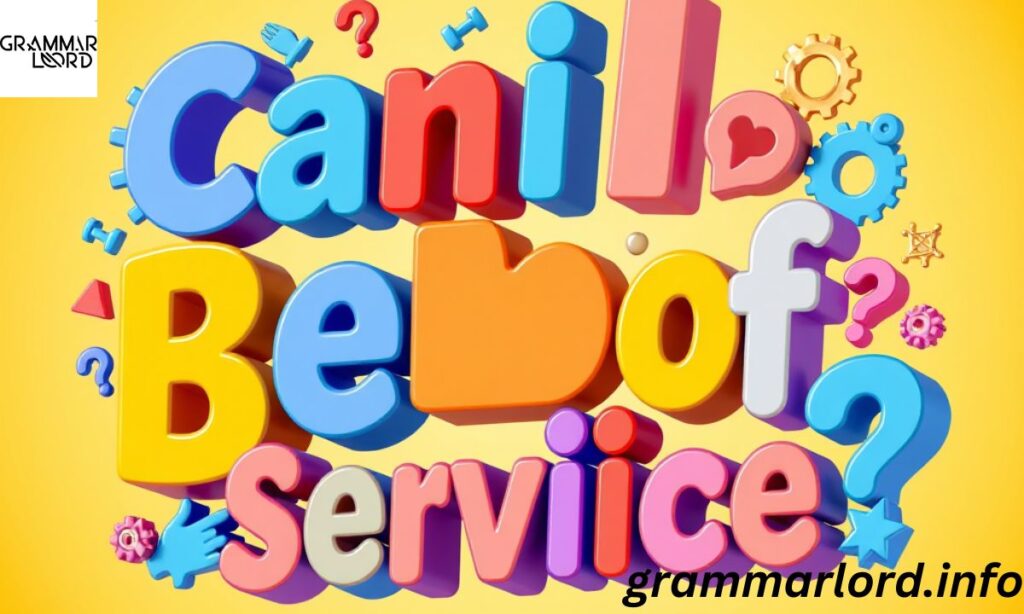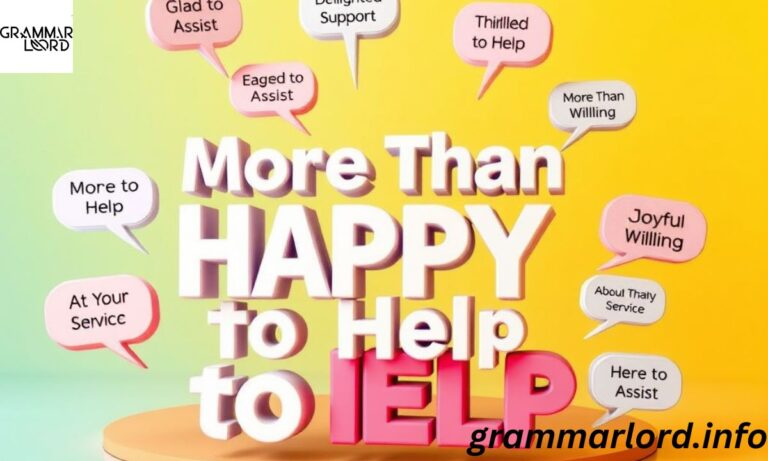If you want to express your willingness to assist in different ways, there are plenty of alternatives to “more than happy to help.” Using varied phrases can make your response sound more natural and engaging.
Some great alternatives include “Glad to assist,” “Always here to help,” and “It’s my pleasure to help.” These expressions convey enthusiasm while keeping the tone professional and friendly. Below are 11 different ways to say “more than happy to help in various situations.
How Can I Assist You?

This phrase is a polite and professional way to offer help. It shows that you are open to understanding the other person’s needs.
Using this phrase makes you sound approachable and willing to engage. It works well in both formal and informal settings. Whether at work or in daily conversations, it reflects your readiness to help.
Ready to Lend a Hand
This phrase conveys a sense of eagerness and willingness to assist. It implies that you are not just available but also proactive in offering support. It’s a great way to express helpfulness in both personal and professional interactions.
Whether helping a colleague or a friend, it sounds friendly and supportive. It reassures the other person that they can rely on you.
What Can I Do for You?
This phrase is direct and to the point, making it effective in many situations. It shows that you are focused on solving the other person’s problem.
It’s commonly used in customer service, teamwork, or friendly conversations. The phrase makes the other person feel valued and prioritized. By asking this, you show a strong willingness to help.
You Can Count on Me
This phrase reassures the other person that they can rely on you. It expresses dependability and trust, making it perfect for professional and personal situations.
Whether at work or in friendships, it builds confidence in your support. It also implies long-term reliability, not just a one-time offer. People appreciate knowing they have someone they can trust.
No Problem. Let Me Help
This phrase keeps the tone casual and friendly while offering assistance. It reassures the other person that helping is not an inconvenience. It works well in both the workplace and everyday interactions.
The phrase also reduces any hesitation the person may have about asking for help. It makes you seem approachable and easygoing.
Eager to Support You

This phrase adds enthusiasm to your willingness to help. It shows that you are not just available but genuinely interested in assisting.
It is great for professional settings where a proactive attitude is valued. Whether helping a colleague, client, or friend, it reflects positivity. It also encourages people to reach out without hesitation.
Happy to Extend a Hand
This phrase expresses both warmth and willingness to assist. It creates a welcoming and supportive tone in conversations.
It’s an excellent choice for customer service, workplace collaboration, or personal interactions. By using this phrase, you show that helping brings you joy. It makes people feel comfortable reaching out to you.
Offer Help Anytime
This phrase highlights your availability and readiness to assist whenever needed. It reassures the other person that they can seek your help without hesitation.
It’s useful in professional settings, friendships, and customer service interactions. By saying this, you create a sense of trust and dependability. It ensures that people feel comfortable approaching you.
Willing to Assist You
This phrase is formal yet warm, making it ideal for professional situations. It shows that you are available and committed to providing support.
Whether in customer service or teamwork, it reflects a cooperative attitude. It reassures the other person that they won’t be bothering you. This phrase makes it clear that you’re open to helping.
Always Here to Help
This phrase conveys ongoing support rather than a one-time offer. It reassures others that they can rely on you whenever they need assistance.
It’s commonly used in customer service, teamwork, or even among friends. It makes people feel valued and supported. This phrase strengthens relationships by emphasizing dependability.
Can I Be of Service?

This phrase is polite and professional, often used in formal situations. It adds a respectful tone while offering assistance. It’s commonly used in customer service, professional emails, and workplace interactions.
The phrase makes the other person feel important and valued. It’s a great way to maintain professionalism while showing a willingness to help.
Frequently Asked Questions
Why should I use alternatives to “More Than Happy to Help”?
Using different phrases keeps conversations fresh, professional, and engaging. It also allows you to adjust your tone based on the situation.
Which phrase is best for professional settings?
Phrases like Can I be of Service? and Willing to Assist You are more formal and suitable for workplace or customer service interactions.
What is a casual way to offer help?
Casual options include No Problem. Let Me Help or Always Here to Help, which sound friendly and approachable.
Can these phrases be used in emails?
Yes, phrases like How Can I Assist You? or Happy to Extend a Hand work well in professional emails to maintain a polite tone.
How can I sound more genuine when offering help?
Using enthusiastic phrases like Eager to Support You or Ready to Lend a Hand adds warmth and sincerity to your offer.
Conclusion
In conclusion, offering help in different ways allows you to communicate warmth, professionalism, and reliability. Whether in personal conversations, workplace interactions, or customer service, using varied expressions makes your willingness to assist sound more engaging.
Phrases like “You Can Count on Me” or “Happy to Extend a Hand” show dependability, while more formal options like “Can I Be of Service?” add a professional touch. By choosing the right phrase, you can create a positive impression and make people feel comfortable asking for help.

